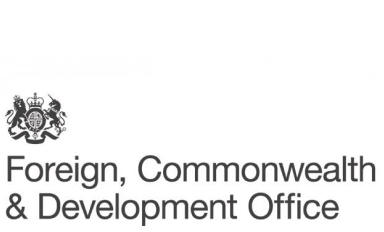One of the main activities of the EU BIM Task Group (EUBTG) is the organization of knowledge transfer workshops. The goal of the workshops is to have active round table discussions with on-site participants using the following format:
Discussion moderated workshop without long boring presentations.
20-30 participants maximum to be able to keep discussions interesting and let any participant take an active part in the debate.
Topics and agenda of the workshop can be in advance shape by registered participants.
Outcome: Knowledge and suggestion document that will be published on the EUBTG website after the workshop
The workshops are intended for public clients and policy makers. Information about upcoming workshops is communicated through the General Assembly members of EUBTG.
As the construction industry continues to evolve and increasingly embraces digitisation, an early-stage project deliverable for Build Digital was to conduct a horizon scan of the opportunities available for those within the construction sector. A primary aim, therefore, is to provide a comprehensive inventory of educational and training provisions that exist within Ireland at present. The resulting inventory focuses on key educational sectors, including Universities, Educational Training Boards (ETBS), Colleges of Further Education, Professional bodies, and similar organisations. There are in excess of 300 entries on the inventory.
https://www.builddigitalproject.ie/education-training-inventory
DIHCUBE, Digital Italian Hub for Construction and Built Environment is the Italian hub for innovation in the construction world which aims to increase the levels of digitalisation of the sector through services aimed at the entire supply chain. The DIHCUBE hub, co-financed by the European Commission, is made up of a team of 12 partners able to offer services and consultancy to: small and medium-sized enterprises, public administration, professionals and materials producers.
The BoletÃn Oficial del Estado (BOE) publishes decrees by the ‘Cortes GeneralesÂ’, Spain’s Parliament (comprising the Senate and the Congress of Deputies) as well as those orders enacted by the Spanish Autonomous Communities. This includes the official publishing of all Spanish judicial, royal and national governmental decrees, as well as any orders by the Council of Ministers. The General State Administration plans to strengthen the process of implementation and development of the BIM methodology in public procurement in the civil engineering and construction sector in Spain, incorporating BIM requirements in the tenders for civil engineering and public works contracts. Royal Decree 472/2019, published on the 2 August 2019, regulates the direct granting of subsidies to various professional associations and general councils of professional associations for training in the BIM methodology during the 2019 budget year.
Recently Spain has committed to carrying out information and training actions for the personnel in charge of implementing the Plan for the Incorporation of the BIM Methodology in public procurement in the General State Administration, as well as the promotion of the use of BIM in the professional and teaching field of construction. This is why it is necessary to promote the training of professionals in the sector in this collaborative methodology. In order for this training to be similar quantitatively and qualitatively for all professionals, it is considered necessary that it be developed by the respective Professional Associations and General Councils of Professional Associations as suitable bodies to guarantee its coordination and extension to the entire national territory, and to all professionals in the sector.
https://www.boe.es/diario_boe/txt.php?id=BOE-A-2019-11400
An archive version of this information article has been created if the original is no longer accessible (Archive information from January 2024)
The BIM Acceleration Committee (BAC) is the driving force behind BIMinNZ. They are a nationwide alliance of industry and government, established in Feb 2014 to coordinate efforts to increase the use of BIM in New Zealand. An important enabler of BIM adoption is to ensure that construction professionals of today remain current with the changing ways of delivering great value to clients, whilst at the same time increasing the range of digital tools available. This range of video training resources which the BAC has made freely available helps industry to grow capability & capacity related to BIM.
As part of the BIMinNZ initiative for industry training the successful BIM101: An insight Seminar series have been created and presented by Industry volunteers. There are Seven Modules, and these videos follow on from the successful BIM101 training booklet which can be downloaded on the BIM Industry Training page.
The Lechner Knowledge Centre (LKC) is a professional background institution to the Prime MinisterÂ’s Office specialising in architecture, land registry records and GIS. Its mission is the digitalisation and promotion of the wide range of public services it provides relating to the built environment and spatial data. The LKC has held the largest amount of spatial data and had the widest range of GIS expertise in Hungary since 2019. LKC serves as an intermediary between architecture and associated professions and the wider public, making its services available for both professional and residential users.
This website has access to a range of documents and articles relating to the transformation of the construction industry in Hungary, incorporating BIM. The website contains information on all aspects of the LKC profile, including:
– Settlements and smart city
– E-Construction
– Regional Planning and spatial modelling
– Documents and data services
– GIS
– Remote sensing
– Geodesy
– Cultural heritage protection
– Land registry
– Knowledge sharing
Latvian Standard (LVS) is the national standards body for Latvia. It organises seminars and training courses on standards and standardisation in Latvia and Europe to help entrepreneurs, experts of technical committees, students and other target groups to get involved.
LVS created an e-learning platform for unlimited free access to courses and training materials related to standards and standardisation (registration via email is required).
The courses are designed to provide basic knowledge in BIM to a wider range of specialists. The e-learning platform includes subjects such as standards and standardisation, BIM management, BIM coordination, BIM modelling, risk management and information security management systems.
An archive version of this information article has been created if the original is no longer accessible (Archive information from January 2024)
The Construction Digitalization Center (BÅ«vniecÄ«bas digitalizÄcijas centrs, BDC) is a structural unit of Riga Technical University (RTU). BDC has been established to promote the acquisition of digital processes in the construction industry.
The BIM training programme was organised by RTU’s Construction Digitalization Center in cooperation with the CMB Engineering Competence Centre and procured by the Latvian National Standards’ body.
The programme provides live in-person and online training for the practical implementation of BIM in Latvian construction companies and the application of BIM on projects. It covers a wide range of subjects from general BIM awareness through to practical classes in working with specialised BIM software and BIM modelling. Participant feedback on the training has been shared with the Ministry of Economy to inform further development of the Latvia’s BIM Roadmap.
The BIM Standard for Public Projects video tutorials were developed to facilitate the comprehension of this document and its concepts. They explain topics such as: What is a BIM Execution Plan, how to use the BIM Entity Information Matrix (Matriz de Información de Entidades), how are the Types and Levels of Information defined (Tipos de información or TDI, Niveles de información or NDI), among others. Furthermore, these videos explain some of the activities required to achieve an interoperable BIM workflow using IFC, including the use of free software to check the quality of BIM models.
During April and May 2020, Planbim produced six webinars about different Digital Transformation and BIM topics. Some of the topics included were: Digital leadership, BIM’s ISO Standards, and how to use the BIM Standard for Public Projects, among others. The sessions are available on Planbim’s YouTube Channel, attracting more than 12.700 views.


